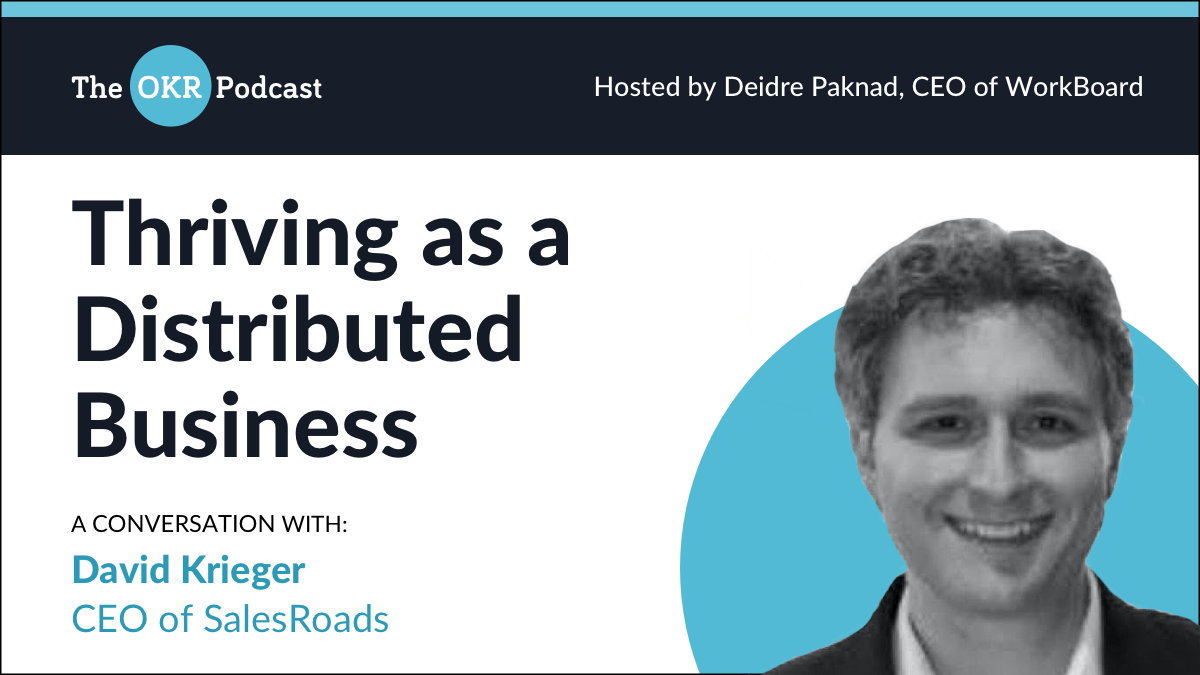
David Krieger, CEO of SalesRoads: Meeting on a weekly basis, I have found, really propels the completion of important projects — or “rocks” as we call them.
One of the features that is so amazing in WorkBoard is that we can put agendas in a meeting and add some of the tasks from our rocks. So, if somebody wants to talk about one aspect of that rock, we just put it in there with a click of the button, and we know it’s on that agenda. We don’t have to think about it — it’s in there, and we can put notes against it or even solve it and check it off. That’s amazing for alignment and for meeting rhythms because we’ve all been in meetings where you talk about certain things you’re going to get done, but you forget to write it down. But if you run your meetings in WorkBoard, there’s no chance of that happening. That’s been key both for our alignment and for making sure we’re marching toward completion of a given rock over the course of the quarter.
Among other things, I use WorkBoard as a note to self. It keeps me organized, and it’s also a note to everyone else on the team. I encourage everyone to think in WorkBoard — for instance, getting into the discipline of having the things you want to discuss in WorkBoard during one-on-ones or meetings means we’ll remember next week what we talked about today, and what we agreed would get done and when.
We try to close every single meeting, whether it’s a team meeting or a one-on-one, by reviewing the things we agreed on getting done — and all of those things are in WorkBoard. Or, in our next one-on-one, we can just click on the one-on-one from the last week and remind ourselves of the things we committed to and see what actually got done.






